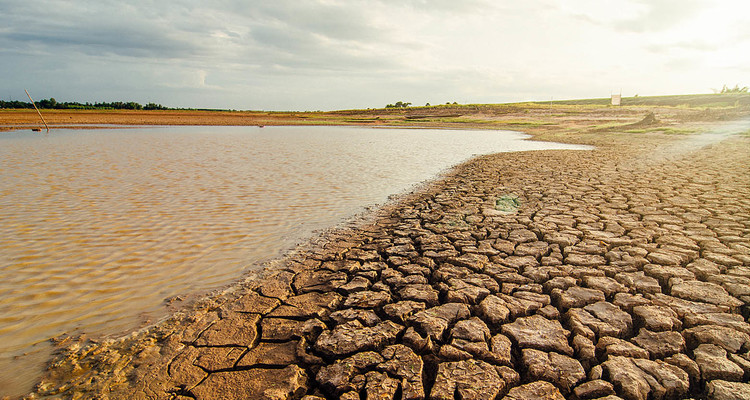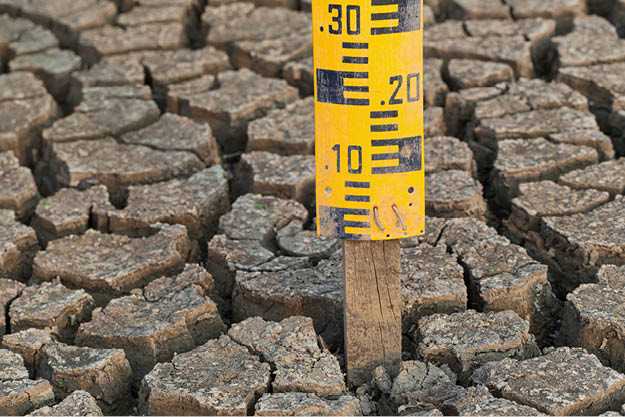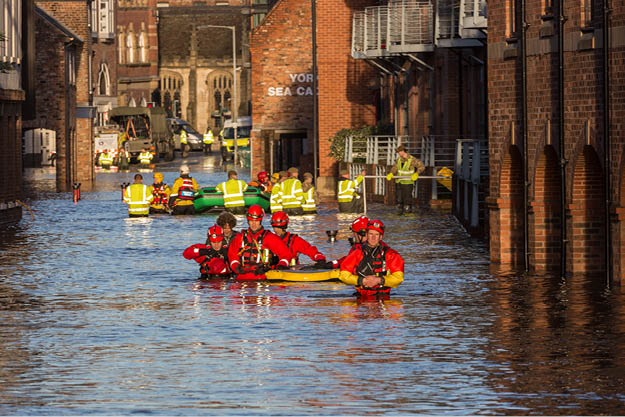
Climate change has been in the news a lot again recently, with Donald Trump and Greta Thunberg taking shots at each other at this year’s Davos Economic Forum.
As a polarising issue, the climate change debate is subject to intensive rhetoric and media soundbites, which often does more harm than good.
But while high-profile protestors and politicians argue, the scientific community is championing an ever-growing body of research which confirms that the world is getting warmer and weather patterns are becoming more severe as a result.
There is lots of evidence to suggest that the world is getting warmer. For example, a study by NASA’s Goddard Institute found that global temperatures in 2018 were up by 1.5oF against the 1951-1980 average.
This is a concern because warmer air can hold more moisture than cold air (up to 7% per degree of warming according to the Clausius-Clapeyron equation), meaning more water is taken from the earth’s surface by evaporation.
Should temperatures continue to rise, the world would inevitably become drier, which would impact on fresh water supplies.
A greater rate of evaporation would likely cause a decrease in water stocks in reservoirs, which would lead to more incidences like the kind that was recently experienced in Cape Town, where the city was at real risk of completely running out of water.

On the other side of the coin, what goes up must come down, meaning that additional moisture in the atmosphere will increase the volume and consistency of rainfall events, which in itself can cause significant problems.
In the UK, increased rainfall is already being recorded. The 2018 UK State of the Climate report, completed by the Royal Meteorological Society, concluded that the UK’s climate is becoming wetter.
According to the report, the most recent decade (2009-2018) has been on average 1% wetter than 1991- 2010 and 5% wetter than 1961-1990 for the UK overall. Furthermore, the amount of rain recorded on extremely wet days has increased by 17% when comparing the same time period.
The most obvious risk of consistently wetter weather is that of flooding, and in 2018 the Environment Agency warned that, in the UK, intense bouts of flooding are set to become more frequent.
In fact, Met Office records show that since 1910 there has been 17 record-breaking rainfall months – with 9 of the 17 being post 2000.
In 2015, storms Desmond, Eva and Frank, and the resulting flooding, caused approximately £1.6bn worth of damage in the UK. And more recently, Yorkshire experienced what was described as ‘biblical’ flooding after parts of the UK were bombarded with a months worth of rain in 24 hours.
Spending on flood defences was even raised as a discussion topic during the December 2019 UK General Election, showing just how important this issue has become.
While this seems counterintuitive, the UK is at risk of water supply deficits and flooding at the same time. This is due to the timing and extent of rainfall.
As explained in a report by the Committee on Climate Change Adaptation Sub-committee:
Water supplies (groundwater and reservoirs) need sustained rainfall over a period of time, particularly in winter, to remain at required levels. The intense rain that can lead to flooding from rivers and surface water does not necessarily replenish these large stores, as water may flow rapidly downstream before it is captured, and not fall in sufficient quantity over a prolonged period.

Water companies in the UK, and internationally, understand the threats to their networks posed by climate change and are investing heavily in infrastructure to meet the challenges posed by climate change.
However, while high-profile protestors and politicians argue, global warming is happening and the effects are being witnessed more frequently, and more severely, all across the world.